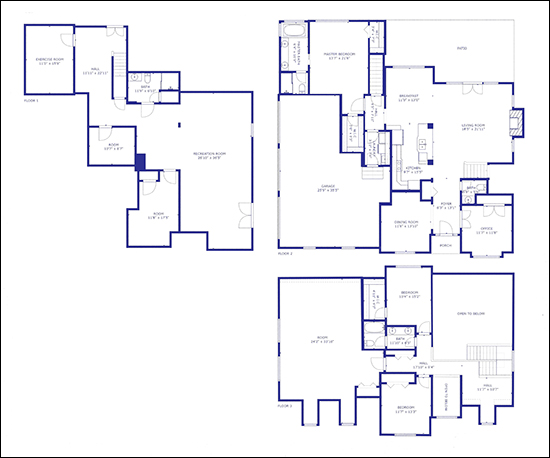Selling
| Newer Posts | Older Posts |
Do Not Obsess Too Much Over The Zestimate For Your Home |
|
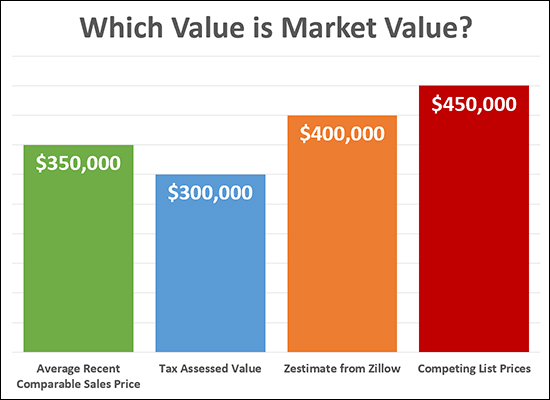 Awesome, my Zestimate is X! Oh my, my tax assessment is only Y! Don't worry too much -- neither is necessarily very close to your home's value -- especially if there is a great variance in the values, as shown above. Of the multiple values shown on the graph above, the market value of the imaginary home in question is the GREEN bar -- a home's value is most often determined by how much other buyers have recently paid for similar properties. A would-be buyer might WANT the home's value to be the "tax assessed value" -- but that might be quite a bit lower than the recent sales prices -- so a home's tax assessed value is not necessarily the home's market value. A would-be seller might WANT the home's value to be the "Zestimate" from Zillow -- but that might (often, usually) vary quite a bit from a home's market value -- so a home's Zestimate is not necessarily the home's market value. A would-be seller might REALLY WANT the home's value to be the same as the list price on competing properties currently for sale -- but those listings might sit on the market forever with unreasonably high list prices -- so the list price of competing listings is not necessarily the home's market value. Now, this scenario would be much easier... 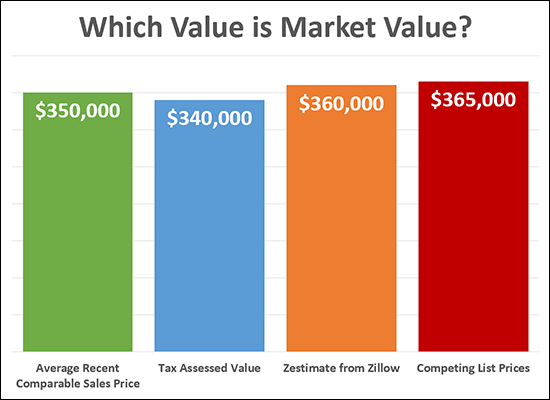 As you can see here, there isn't too much of a difference between the different values -- so it matters a bit less which of the value perspectives we use when estimating a likely sales price and planning for a potential list price. But in the case where there is quite a bit of separation in these different value perspectives -- stay focused on what other buyers have recently paid for similar properties -- this alone is your best guide as to what you can/should expect the next buyer to be willing to pay for your house. | |
City Homes Between $150K and $250K Are Selling FAST |
|
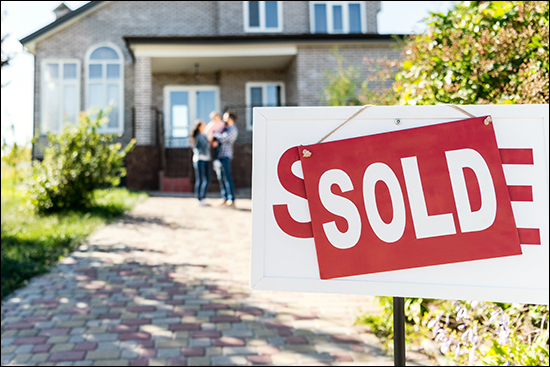 Even in the midst of a pandemic, City homes between $150K and $250K are selling fast! I have experienced this several times lately either representing a seller or buyer, so I though I'd see if the data lined up with my experiences. It does. I took a look at all properties (attached or detached) between $150K and $250K that have gone under contract during the past 60 days in the City of Harrisonburg. There have been (24) such properties -- and they have gone under contract in a median of 3 DAYS. And of those 24 properties, 16 of them were under contract within a week! If you are selling a City property between $150K and $250K, you are likely to see plenty of buyer interest. If you are hoping to buy a City property between $150K and $250K, you had better be ready to act fast, and you are likely to have plenty of competition. | |
YTD Home Buying Activity Slows Slightly in 2020 |
|
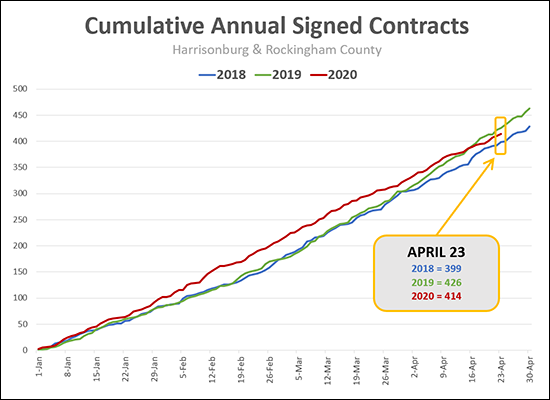 This is my first weekly check-in with contract activity where we're seeing a slight decline in contract activity in 2020 as compared to 2019. The data...
So, slightly fewer buyers have contracted on homes this year (to date) as compared to last year (to date). Is it significant? No, at least not at this point. There has been a 2.8% decline in buyer activity in 2020 -- which is a relatively small decline given how much of our daily lives has temporarily changed due to COVID-19. Happy Friday, and I'll check in on this metric again about a week from now. | |
Minimizing Distractions So Buyers Can Focus On Your House |
|
 Preparing your home to go on the market can be challenging (and tiring), and often sellers-to-be need a second (or third) set of eyes to provide suggestions about where to focus their time and energy. There are many different theories about how to best prepare your home to be on the market and viewed by buyers --- and ways of expressing those theories.
Distractions are the things that keep a prospective buyer from focusing on your house. That might be knick knacks, or family photos, or refrigerator magnets, or an overflowing pantry, or fascinating artwork, or an abundance of indoor plants, or a strange odor, or brightly colored wall hangings. Whatever it is --- if a buyer is focusing on one (or more) of these items, they're not focusing on your house. They're reading all of the Far Side comics on the fridge instead of marveling at the granite countertops, tile back splash, recessed lighting, and stainless steel appliances. They're amazed at how you fit 234 board games into the coat closet instead of taking in the quality workmanship of the trim detail in the foyer, and the mountain views out the picture window in the family room. As you prepare your home to go on the market, close your eyes for a few moments when standing at the entrance to each main living area. Then, open your eyes, and take note of where your eyes are immediately drawn. Or, walk slowly through the space (or ask a friend to help) seeing where your eyes (and your mind) linger. Objections are those correctable physical characteristics of your home that give a buyer a reason to mark your home off their list, or to move it down a notch in their preferences. Perhaps it is that the vinyl siding needs to be power washed, or that three bi-fold closet doors need to be adjusted, or that there is poor lighting in the kitchen, or that the deck needs staining. There are oftentimes small home maintenance items that should be attended to before putting your home on the market. There are two potential dangers of having these items unresolved --- first, a buyer might become too overwhelmed by the work that they need to do to the home once they move in, and second, a buyer might extrapolate from what they can see to imagine what they cannot. A classic example of this is the dirty furnace filter that makes a buyer assume that the HVAC system has never been serviced, is in a terrible state of disrepair, and will need to be replaced immediately. As you're preparing your house to go on the market, I'm happy to provide you with another set of eyes and to give you some new perspectives on how to best prepare your home to be shown to buyers. When you're ready, just give me a call (540-578-0102) or send me an e-mail (scott@HarrisonburgHousingToday.com). Also, don't fret about having your home in perfect "show condition" before you call me --- I'm happy to give you some guidance and feedback while you're still in the process of preparing your home to go on the market. | |
Real Estate Closings In The Time of COVID19 |
|
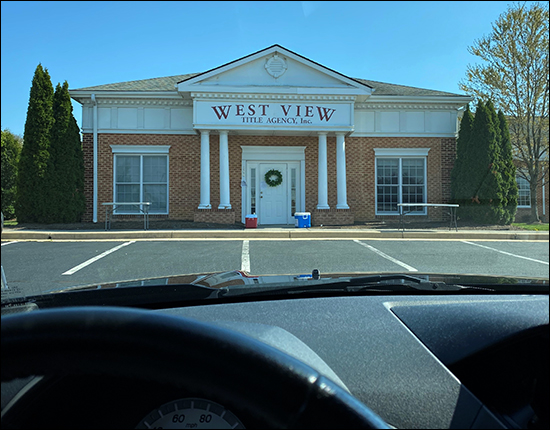 Prior to a month ago, lots of people would attend each real estate closing, such as:
But these days, it doesn't work so well to have a closing with 5 to 10 people present -- especially when a title company might have 8 to 12 closings per day. That title company would then potentially have 75+ people walking in and out of their office each day, in addition to the 10-ish people working in the office. So, things happen a little differently now... Basically, each party (buyer and seller) drives to the title company, picks up the closing documents from a box outside the front door of the title company, calls the closing attorney to review the documents by phone, and then signs the documents in their vehicle. Once the documents are signed, they are put back in the box and the closing attorney takes the documents into the office to review them and then let's the buyer or seller know that they can leave. This new process (utilized by multiple local title agencies) is still allowing real estate closings to happen, but it certainly is a tad bit less exciting than it used to be. There is (necessarily) quite a bit less personal interaction with this new process and some of the joy of a home purchase (or sale) isn't quite the same at that particular moment of the transaction. | |
Floor Plans Can Help You Understand How Photos Tie Together |
|
Most home shoppers have had this experience when looking at homes online -- they see beautiful photos of many wonderful rooms in a house -- but can't quite figure out how the different photos and rooms tie together. Photos also often lack a sense of scale, especially when taken with a wide angle lens. The best cure for this? Floor plans. Floor plans for a house can show you how all of the different rooms connect (or don't) and can provide a sense of scale with room dimensions. The 3D camera and imaging system that I use can create a floor plan of your home - click on the image at the top of this post (or here) to view a larger version of this floor plan. When you're getting ready to list your home this spring or summer, let's plan to create a 3D walk through and floor plans for your home! Read about all of the other ways we can market your home by visiting.... SellingAHomeInHarrisonburg.com | |
Will Inventory Levels Be Even Lower Than Low This Spring? |
|
 If you haven't heard, inventory levels have been LOW lately -- with very few homes for sale at any given time -- which can be frustrating for buyers. And it is even more frustrating and challenging for seller/buyers -- folks who need to both sell and buy at the same time. If you have to sell your home, but you aren't sure whether you can find something to buy, you'll likely wait to list your home for sale until your dream home comes on the market. This phenomenon (seller/buyers waiting to list until they find something to buy) further reduces inventory levels because the seller/buyer's homes are not listed for sale. And now, with COVID-19 causing some sellers to wait a few weeks or months to list their homes, it seems possible that we'll see even lower inventory levels than we would expect to see at this time of year. The upside for sellers who are willing to list their homes right now is that they might have less competition from other sellers who might choose to wait to list their homes for sale. The downside for buyers is that they might have to wait even longer for the "right" home to come on the market for sale. | |
I Think We Will See Fewer Houses Listed For Sale This Spring |
|
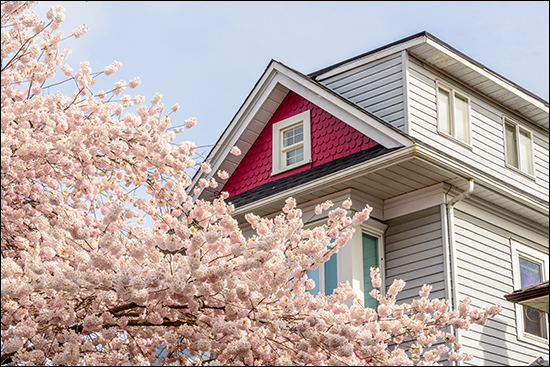 It's spring! Flowers are blooming! The smell of new mulch is in the air! Many of us are battling with the onset of seasonal allergies! And we're seeing new listing after new listing hit the real estate market. Wait, what? Maybe not that last one. You see, it has officially been spring for a few weeks now, but we've also been dealing with the ongoing spread of a pandemic for a few weeks. What does that all mean for how many homes we'll see coming on the market this spring? I think we'll see fewer homes listed for sale given the current circumstances - though it will be hard to really measure that. We'll see fewer homes for sale than we would have if COVID-19 wasn't happening -- but we don't really know how many homes would have been listed for sale that now won't be listed for sale. So, in as much as we do experience a slightly-less-than-normal spring market...
It seems the local housing will make its way through all of this - but the timing of listings and the timing of sales will likely be a bit unusual this year! | |
Yes, Houses Are Still Being Listed For Sale |
|
Some sellers are certainly waiting to put their house on the market given everything happening with COVID-19, but it seems that plenty of sellers are still listing their homes for sale...
When sellers are listing their homes for sale, they are often taking some extra precautions to keep their homes clean, such as...
So, if you are a seller thinking about listing your home for sale -- you won't be alone if you decide to go ahead and move forward with getting your house on the market -- but it is also understandable if you want to hold off for now. And if you're a buyer, in the current low inventory market, you should still be stalking the new listings to make sure you are not missing out on any opportunities. If you have any questions about buying and selling in this unusual, unprecedented time, feel free to touch base. Drop me a line at scott@hhtdy.com. | |
How Is Coronavirus Affecting How Many Buyers Are Buying Homes In Harrisonburg, Rockingham County? |
|
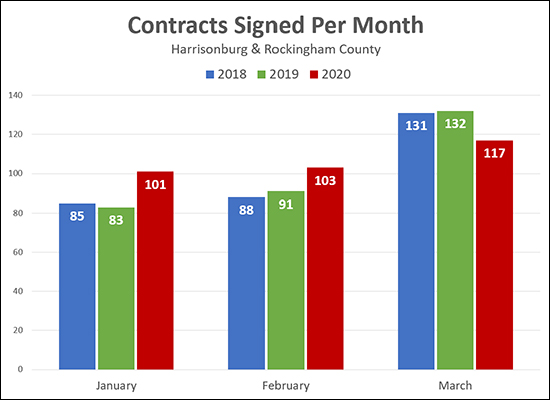 Is Coronavirus slowing down home buyers in Harrisonburg and Rockingham County? It seems it may be, somewhat, but it's probably too early to make any definitive conclusions. Based on the graph above...
Here's another graph that shows looks at the cumulative number of home buyers who signed contracts through the entire year in 2018 and 2019, and thus far in 2020... 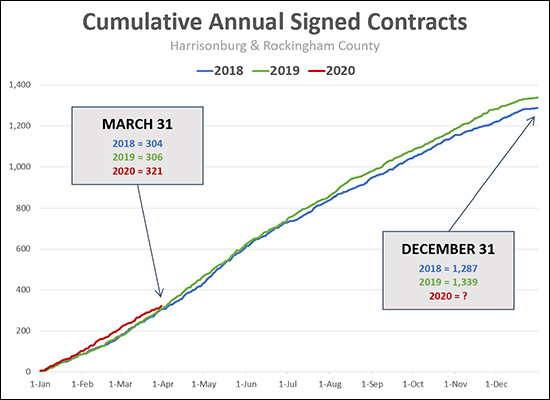 Above, you'll note that 2020 is still ahead of 2018 and 2019 when looking at the sum of January through March -- but that 2020 is drifting back downward towards 2018 and 2019. And, plenty disclaimers...
Anyhoo - lots of data, lots of possible conclusions, lots of caveats, and lots to continue to monitor over time. If you're thinking of buying or selling this Spring, let's chat about what makes sense from a timing perspective given continually changing market dynamics. | |
And Where Do The Buyers Work And What Do They Do? |
|
 If you're buying a home, get ready for a few extra questions from home sellers, at least for the time being... Most would-be home buyers in this area seem to be able to continue with their home purchasing plans despite the implications of COVID-19, but it is likely to interrupt some buyers' jobs, and thus income, and thus ability to buy a home. So, if your job IS secure (hopefully most everyone's) and you are getting ready to make an offer on a house, be sure to put some though into how you can best help the seller understand that your job is secure despite the changes we are seeing from COVID-19. And don't be surprised if the seller wants to know ALL about your employer, your job, if you are working on site or from home, if you have had any reduction in your hours, if there is any talk of your job being scaled back or eliminated, etc. Sellers are just trying to do their due diligence to make sure they don't get halfway to closing and then find out that the buyer's income has declined (or has been interrupted) and they can't follow through with their home purchase. Maybe the nice cover letter with a photo of your family and pets that accompanied some offers will now be replaced by a copy of your job description!? :-) | |
Some Segment Of Home Buyers Will Not Be Able To Buy For A Time |
|
 Unless you are paying cash for your next home, you'll need to be able to show your mortgage company that you have a steady source of income with which you'll be able to make your mortgage payments. That source of income is usually going to be from your job. Some jobs are more interrupted by COVID-19 than other jobs. Plenty of would-be home buyers are still working, perhaps from home, perhaps online, or perhaps their job is one that requires them to keep reporting to their place of employment. Some would-be buyers are having their hours scaled back, or are seeing their income decline, based on changes in business operations. So, BUYERS should keep in mind that if your income is (or is likely to become) interrupted by COVID-19 developments, then we may want to press the *pause* button on the home search just for a moment. And SELLERS should keep in mind that there may be somewhat fewer buyers in the market to buy your home if their income has been (or might be) interrupted by COVID-19 developments. Thus far, it doesn't seem that we're going to see most buyers not being able to buy homes because their income is being affected -- but we are likely to see at least somewhat of a decline in buyer activity. | |
Is Social Distancing Keeping Buyers From Buying Houses In Harrisonburg? |
|
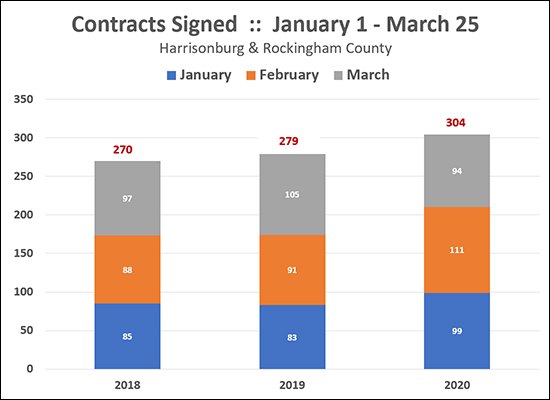 I don't think I had ever heard of the concept of social distancing prior to March 2020. Maybe it was a thing, but just not a part of our common vernacular? Anyhow -- it's here now, and real -- but the question that many of you have asked me is whether social distancing is affecting market activity in our area. Above is a first look at that -- and I'm coming to a conclusion of "maybe, maybe not, maybe not yet, who knows" -- so, you're welcome in advance for the great clarity I will be providing here. ;-) The graph above shows the number of contracts that were signed (by buyers and sellers) for houses in Harrisonburg and Rockingham County between January 1 and March 25 of each of the past two years, as well as this year. A few observations...
So, now you see why I concluded what I did...
Anyhoo - we'll just have to continue to monitor the impact of social distancing on our local housing market - but thus far, we have not seen a drastic decline in the amount of buyer activity. | |
Should I List My House For Sale Now? |
|
 School is cancelled and/or happening at home for the rest of the year. Businesses are closing. Folks are encouraged to stay at home and certainly not spend time in groups any larger than 10 people What does this mean for someone thinking about selling their home? If you were planning to sell your home this Spring, should you list it for sale now, given the current state of affairs? As usual, it depends... Yes, you should list your house for sale now...
No, you should not list your house for sale now...
So, plenty of reasons to list your home for sale, and plenty of reasons to hold off on doing so. All that said, this gets slightly more nuanced once we consider your reasons for selling...
So - yes - it depends. If you were planning to list your house for sale this Spring, the decision to do so is at least a bit more complex than it was previously. Let's talk sooner rather than later (and then on an ongoing basis) to figure out what makes the most sense for you given your circumstances and goals. | |
It Is A Great Time To Virtually Walk Through A Home |
|
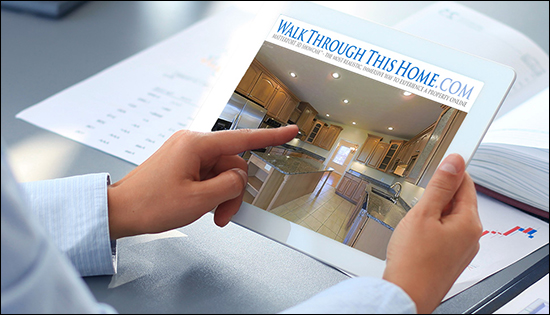 It's a great time to virtually walk through a home - given social distancing, and everything going on right now. Here are a few homes where you can do just that... 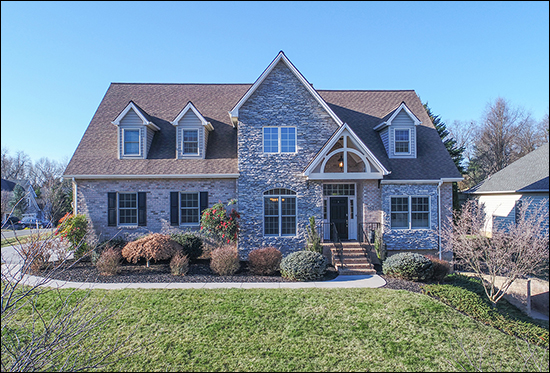 This beautiful, well maintained, contemporary home in Kentshire Estates with an open floor plan, a stone and brick exterior, an expansive garage, and a finished basement is located in close proximity to Sentara RMH Medical Center. Enjoy upscale finishes throughout, such as hardwood floors, crown moulding, custom cabinetry, granite countertops and much more. The two story great room with a gas fireplace is open to the kitchen and the main level also features the master suite, a home office and formal dining room. Upstairs you'll find three additional bedrooms - one being an enormous bonus room - and the lower level features an open rec room or family room, plus an additional office option, a full bathroom, and storage space. 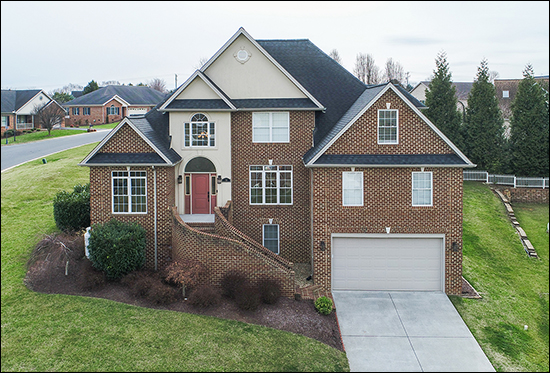 16 LOUISE DRIVE: Walk Through | More Details This immaculate brick contemporary home in Windsor West is just a short walk away from Turner Ashby High School! Enjoy a grand two-story living room with hardwood floors and a gas fireplace, an upscale kitchen with granite countertops, a pantry and breakfast nook, an enormous family room just off the kitchen, with lots of natural light, a home office at the front of the house and a master suite with a walk-in closet. Don't miss the large laundry room with plenty of cabinetry, three upstairs bedrooms, plus a rec room, bedroom and bathroom on the lower level! Recent updates include a new back patio, new exterior doors and lighting, new carpet, fresh paint, and much more! This home offers lots of storage in the basement! 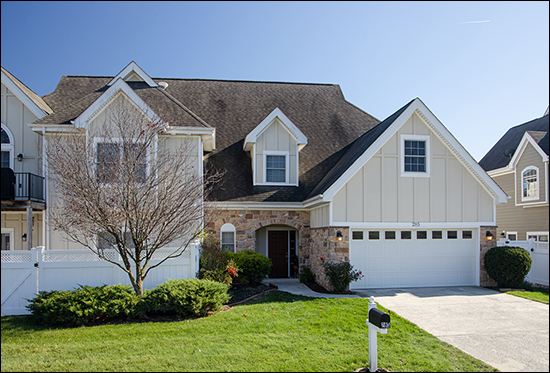 285 CALLAWAY CIRCLE: Walk Through | More Details This upscale paired home in The Glen at Cross Keys offers low maintenance living with a HardiePlank and stone exterior and a fenced backyard. Enjoy an open floor plan with a two-story living room, gourmet kitchen with plenty of cabinetry, granite countertops, stainless steel appliances and an eat-up breakfast bar, hardwood floors on the main level and a large dining room easily converted to a guest bedroom. The master suite features a separate sitting room or home office, a master bathroom with ceramic tile floors, a double vanity, a shower and a soaking tub. Don't miss the second bedroom suite upstairs, the full bathroom on the main level and the two-car garage! All this in a beautiful, well-maintained community with mountain views! | |
Buying When Needing To Sell But Only If You Can Buy But After You Sell |
|
 If you're looking to buy a house this Spring or Summer -- but -- you own your current home -- this morning's ramblings are for you... Selling (for some houses, in some price ranges, in some locations) can seem like a breeze -- inventory is low, buyer interest is high, homes are going under contract quickly -- all good news for sellers. And buying (for some houses, in some price ranges, in some locations) can be quite difficult these days -- inventory is low, interest from competing buyers is high, homes you might want to buy are going under contract quickly -- all less than exciting news for buyers. And when you wrap those two realities together -- buying and selling at the same time -- things can get tricky. Because it can be hard to find something to buy, many would-be seller-buyers aren't listing their home despite their desire to make a move. After all, they don't want to find someone to buy their home when they don't have somewhere to go. But then, the perfect house comes on the market! So, now what!? Do we quickly (quickly!!) list your home for sale and try to secure a buyer in time to make an offer on your dream house that is contingent on the settlement on the sale of your current home that is under contract? Hoping some other eager buyer has not already secured a contract on your dream house by the time we have your current house under contract? OR -- do we make an offer on your dream home, contingent on the sale of your current home, even though your current home is either not yet on the market or not yet under contract? (Hint, hint - the seller of your dream home probably won't be be interested in this proposal.) OR -- do we make an offer on your dream home WITHOUT a home sale contingency. That was a lot of build up to get here -- but this is the central item you may want to think about as you consider a sale and purchase this Spring or Summer. First - Do you NEED a home sale contingency... This can be pretty quickly determined in a conversation with a lender. Let me know if you need some recommendations of who to call for your next mortgage. They will essentially be asking you questions about your income, recurring monthly debt (house, car, student loans, etc.), and assets (cash) on hand. They'll be trying to determine whether your income (and offsetting expenses) qualify you to get a mortgage to purchase the new home while still owning the current home. Again - this is rather cut and dry from a lender's perspective, so if you're thinking (even a little bit) about whether you could / should / would buy without having first sold, then start with a conversation with your lender. If they can qualify you for a mortgage to purchase your dream home without having first sold your existing home, you will then move on to the next question... Second - Do you WANT a home sale contingency... Perhaps you own a $250K house and you're thinking about buying a $350K house. And perhaps your lender says it is no problem at all - they'll give you a mortgage to buy the $350K house even if you still own the $250K house. And perhaps you are quite certain we'll be able to speedily sell the $250K house. But yet, still, you might decide that you don't WANT a home sale contingency. Maybe you don't want the risk associated with having to pay both mortgage payments until the $250K house sells. Perhaps you don't like the loan terms that will be required on the $350K purchase without having freed up some equity from the $250K sale. Whatever the reason, there may in fact be a reason why you WANT a home sale contingency. Alright - the ramblings will stop for now. As you may have figured out if you made it this far -- selling and buying at the same-ish time can be relatively complex -- and we can't always figure it all out by thinking through a formula or checklist. As such -- if you're thinking about selling and buying this summer, let me know if you'd like to chat more about all of these topics, in person, as it relates to your own particular scenario.
| |
Sorting Through Multiple Perspectives On Home Value |
|
 Which one of the values above is the "market value" of the imaginary home in question? The answer is -- the GREEN bar -- a home's value is most often determined by how much other buyers have recently paid for similar properties. A would-be buyer might WANT the home's value to be the "tax assessed value" -- but that might be quite a bit lower than the recent sales prices -- so a home's tax assessed value is not necessarily the home's market value. A would-be seller might WANT the home's value to be the "Zestimate" from Zillow -- but that might (often, usually) vary quite a bit from a home's market value -- so a home's Zestimate is not necessarily the home's market value. A would-be seller might REALLY WANT the home's value to be the same as the list price on competing properties currently for sale -- but those listings might sit on the market forever with unreasonably high list prices -- so the list price of competing listings is not necessarily the home's market value. Now, this scenario would be much easier...  As you can see here, there isn't too much of a difference between the different values -- so it matters a bit less which of the value perspectives we use when estimating a likely sales price and planning for a potential list price. But in the case where there is quite a bit of separation in these different value perspectives -- stay focused on what other buyers have recently paid for similar properties -- this alone is your best guide as to what you can/should expect the next buyer to be willing to pay for your house. | |
Buyers Of Expensive Homes Are Often Less Willing To Negotiate On Other Home Criteria |
|
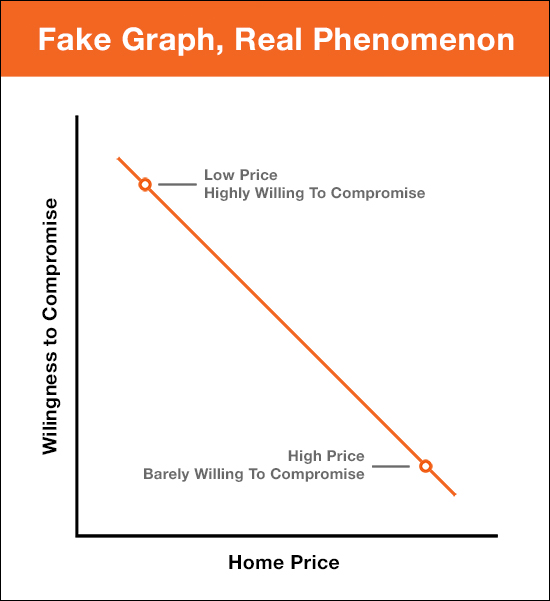 Sometimes, if you can't find data to analyze to demonstrate a market dynamic, you should just make up the data or chart. Right? ;-) Well, not necessarily, but maybe just this once? Here's something I observe time and time again...
And it sort of makes sense when you think of it from a price perspective...
And it sort of makes sense when you think of it from a timeline perspective...
As a side note -- this is one of the main frustrations for sellers of "more expensive" homes -- why do all the buyers have to be SOOOO picky? Why aren't they willing to compromise even just a little bit!? Again -- a real phenomenon, but definitely a fake graph. :-) | |
Typical Obstacles Between Contract and Closing |
|
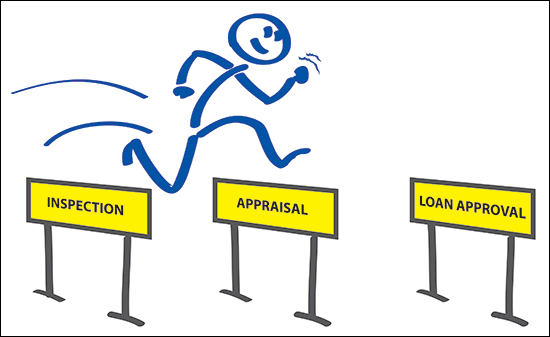 While every home sale is different -- with unique contingencies based on the needs and situations of the buyer and seller -- there are three main hurdles that most buyers and the houses they are purchasing must clear to make it to closing. So -- where is your contract in this process? Have you cleared 1, 2 or 3 of the hurdles, thus far? There will be plenty of other details to attend to, but these are the three main areas of focus. Evaluating the property condition, the property value, and the buyer's finances.... INSPECTION - This is an evaluation, by a home inspector, of the condition of the house. Clearing this hurdle typically involves requesting that the seller make some repairs to the house (or negotiate further on price) based on new information about the property condition discovered during the inspection process. APPRAISAL - This is an evaluation, by an appraiser hired by the purchaser's lender, of the value of the house. If the property appraises for the contract price (or higher), all is well -- otherwise, the buyer and seller may need to renegotiate the contract price based on the appraised value. LOAN APPROVAL - This is an evaluation, by a lender (and their underwriters) of the purchaser's financial situation. The lender must confirm that the buyer has the income to support the mortgage payment required for purchasing the home. Again - there are many other smaller hurdles (for example, a termite inspection) and larger hurdles (for example, a home sale contingency) that may need to be cleared in your purchase (or sale) of a home -- but these three main hurdles (inspection, appraisal, loan approval) are the three main mileposts during the contract-to-closing process that we'll be focused during the transaction. BUT WAIT -- THERE'S MORE.... Would you rather have three main hurdles to clear, or six? Let's imagine that you receive two offers on your house, which is listed for $250K....
So -- a slightly higher sales price, with a home sale contingency, is not always more valuable to a seller than a slightly lower sales price without a home sale contingency. | |
Balancing Realistic and Optimistic Pricing Strategies |
|
 Pricing a home in a low inventory, fast moving, market can be tricky... REALISTIC... I'm a firm believer that the best indication of the price for which your house is likely to sell is determined by the price that other buyers recently paid for similar houses. Perhaps we look at what buyers have recently paid and see that they have been paying $250K for houses similar to your home. Perhaps we then conclude that we should list your home for $255K or $259K. OPTIMISTIC... There is also merit in considering how many buyers and sellers are in your particular segment of the market. In many segments of the market there are a lot of buyers -- evidenced by listings in the price range receiving multiple offers. And in those same segments of the market there may very well be very few sellers -- evidenced by extremely low inventory levels. With such an imbalance between buyers and sellers it can be tempting (or reasonable?) to think about pricing your home higher than is justified by recent sales -- assuming that at least one buyer will be willing to outspend other recent buyers. Perhaps this means pricing your home at $275K. The upside of being realistic is that it will likely result in a relatively speedy sale and it may result in multiple offers. If you have multiple offers, you will then be able to carefully choose which buyer to work with based on all of the various terms of their offer. Perhaps this means selling your home for $260K or $263K. The upside of being optimistic is that it may result in a higher sales price than being realistic -- though that could backfire if no buyers make offers because they think your house is overpriced -- and it could be reeled back in if the appraisal performed by the buyer's lender does not support the price agreed to between buyer and seller. Perhaps this mean selling your home for $265K or $270K -- but maybe back down to $260K or $263K. So, in the end, these two different pricing strategies may result in different eventual sales prices -- or might actually result in the same eventual sales price -- but they are bound to result in different processes and experiences. We must be strategic in pricing your home. If you're planning to sell this Spring, let's chat soon about how to best balance being realistic and optimistic given market realities in your segment of our local housing market. | |
| Newer Posts | Older Posts |
Scott Rogers
Funkhouser Real
Estate Group
540-578-0102
scott@funkhousergroup.com
Licensed in the
Commonwealth of Virginia
Home Search
Housing Market Report
Harrisonburg Townhouses
Walk Through This Home
Investment Properties
Harrisonburg Foreclosures
Property Transfers
New Listings

